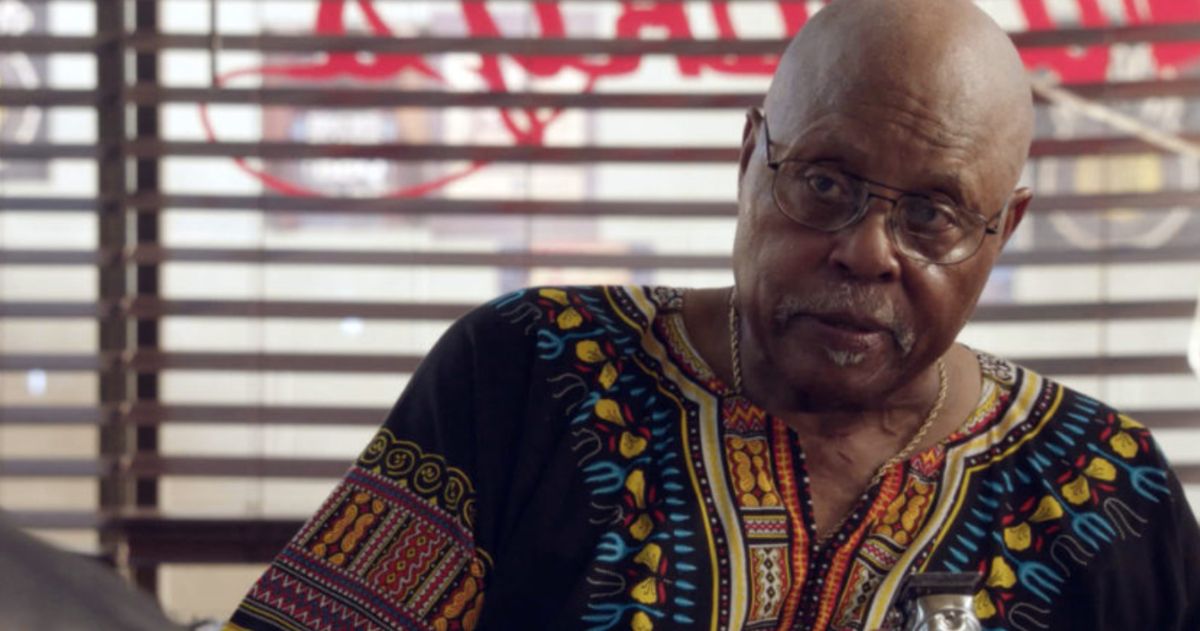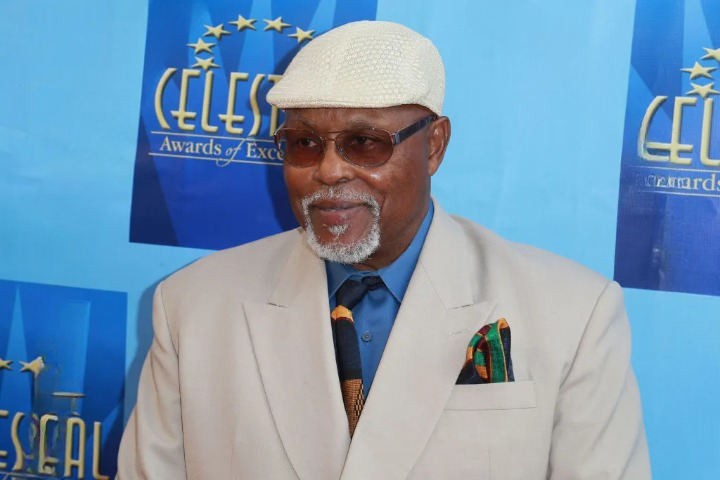LOS ANGELES, CA — Roger E. Mosley was never just another face in Hollywood. His name may not always have been in neon lights, but the impact he left on television, film, theater, and the broader cultural conversation remains enduring. For decades, Mosley stood as a quiet yet powerful force—an actor, director, mentor, and advocate—whose body of work defied stereotypes and whose convictions often placed him at odds with the entertainment industry’s expectations.
With his passing in 2022 and the renewed public interest in his legacy, the values Mosley stood for—representation, integrity, and resilience—are finally being recognized as critical lessons for today’s entertainment world. His life story is not only a tale of acting success but also a chronicle of perseverance, principle, and the cost of refusing to compromise.

Growing Up in Watts: The Foundations of Resilience
Born on December 18, 1938, in Watts, Los Angeles, Roger Earl Mosley grew up in an environment where poverty and hardship were part of daily life. He was raised by his mother, Eloise Harris, who worked in a school cafeteria and instilled in him values of hard work and perseverance.
Watts in the mid-20th century was a community full of both struggle and cultural vibrancy. Opportunities were scarce, crime was common, and systemic barriers limited advancement for many Black families. Yet Mosley always credited his upbringing in Watts with shaping his resilience and sharpening his instincts for survival.
“Being from Watts, I tried poverty for the longest,” Mosley once quipped. “It taught me survival and gave me backbone.”
This outlook carried him through his career. Rather than seeing his circumstances as limitations, Mosley viewed them as lessons. That determination set the tone for the way he approached Hollywood and life in general—never bending when it came to dignity, representation, and principle.
From the Wrestling Mat to the Stage
Mosley attended Jordan High School, where he excelled as a wrestler. The discipline he learned through athletics taught him about persistence, endurance, and the importance of preparation—qualities he would later bring to his acting career.
Yet wrestling was not where his true passion lay. Mosley eventually discovered the transformative power of the arts. He enrolled in drama classes at the Mundy Institute of Los Angeles, where he began developing his craft. Acting became more than a hobby; it became a calling.
By the early 1970s, Mosley had begun landing small roles in television and film. Early appearances included films such as The New Centurions (1972), Hitman (1972), and Sweet Jesus, Preacher Man (1973). Though these roles were small, they revealed a talent for portraying multidimensional characters—men with depth, flaws, dignity, and humanity.

Founding the Watts Repertory Company
In 1974, Mosley demonstrated his commitment to community by founding the Watts Repertory Company, a theater group designed to give young Black performers opportunities that mainstream institutions often denied them. For Mosley, theater wasn’t just about performance; it was about empowerment.
Through the company, he mentored aspiring actors, providing them with the tools to succeed and the confidence to believe in their voices. The company became a platform for creativity and self-expression, particularly for performers from underrepresented communities.
Mosley saw the arts as a way to transform adversity into strength. His passion for theater and mentorship reflected his lifelong mission: ensuring that younger generations had chances he had to fight so hard to earn.
Breakthrough Role: Lead Belly (1976)
Mosley’s big break came in 1976 when he was cast as Huddie Ledbetter—the legendary blues musician known as Lead Belly—in the biographical film Lead Belly, directed by Gordon Parks. The role demanded authenticity, grit, and emotional depth.
Mosley rose to the challenge, delivering a performance that critics hailed as powerful and unforgettable. The role allowed him to showcase his dramatic range and proved that he was more than capable of carrying a major motion picture.
“That was my favorite role,” Mosley told Ebony magazine in 1982. “It showed I was a serious actor.”
Though the film did not achieve blockbuster commercial success, it earned Mosley the respect of his peers and established him as a talent to be reckoned with.

Becoming a Household Name: Theodore “TC” Calvin in Magnum, P.I.
For many, Roger E. Mosley will always be remembered as Theodore “TC” Calvin, the helicopter pilot and loyal friend to Tom Selleck’s character in the iconic television series Magnum, P.I. (1980–1988).
TC was a Vietnam veteran who owned a helicopter charter service in Hawaii, often caught up in Magnum’s adventures. The character became beloved for his humor, loyalty, and grounded nature. But what made TC truly remarkable was Mosley’s insistence on shaping the role with integrity.
He fought for TC to avoid the usual Hollywood stereotypes. Mosley refused to let his character smoke, drink, or be portrayed as uneducated. Instead, TC was a college graduate, a businessman, and a principled man who stood for dignity and responsibility.
“I said, ‘I ain’t a pilot. Colors don’t fly a plane. You just work on it,’” Mosley joked. But behind the humor was a serious determination to break Hollywood’s cycle of negative portrayals of Black characters.
His stance worked. TC became one of the most beloved Black television characters of the 1980s—a man who represented success, resilience, and loyalty.
A Career Defined by Principle
Over the decades, Mosley appeared in a wide range of films and television shows. His credits included The Mac (1973), Heart Condition (1990), A Thin Line Between Love and Hate (1996), and roles in series such as Night Court, Starsky & Hutch, The Rockford Files, Sanford and Son, and Roots: The Next Generations.
He also appeared as Coach Ricketts on Hangin’ with Mr. Cooper and even reunited with Tom Selleck on Las Vegas.
Yet Mosley’s greatest legacy wasn’t just the roles he accepted but the ones he refused. In an era when many Black actors were pressured to accept demeaning or stereotypical roles just to stay visible, Mosley took a different path. He declined roles that portrayed Black men as criminals, addicts, or buffoons.
“I did not want to set a bad example for Black children,” Mosley explained.
Some in the industry saw him as “too principled,” but Mosley wore that label as a badge of honor. His career became a model of how to succeed in Hollywood without losing one’s integrity.
Mentor, Pilot, and Family Man
Off-screen, Roger Mosley’s life was as inspiring as his career. A licensed private pilot—though not permitted to perform his own flying stunts on Magnum, P.I.—he had a lifelong passion for aviation.
He was also deeply committed to mentoring young people, especially those from neighborhoods like Watts. Through workshops, programs, and personal guidance, Mosley encouraged countless aspiring performers to pursue their dreams while staying true to their values.
Mosley was equally devoted to his family. He was married twice, first to Sandre Jlock (1960–1968), and later to Antoinette Laudermick, with whom he shared nearly six decades of companionship. Together, they raised four children in a home centered on love, loyalty, and respect.
“He was warm, humble, and principled,” Laudermick said. “It took him ten years to decide if he wanted to marry me, but I fell in love with him immediately.”
In Hollywood—an industry often associated with instability—Mosley’s enduring marriage and family life were a testament to his values.
Warning Signs: Hollywood’s Reluctance to Change
Today, Mosley’s career is re-examined in light of the challenges that continue to face Black actors in Hollywood. His warnings about stereotyping, lack of authentic representation, and the pressure to compromise are more relevant than ever.
His insistence on dignity for his characters was not just a personal choice—it was a message to the industry and audiences. Representation mattered then, and it matters now. By refusing to compromise, Mosley showed the entertainment world that it was possible to succeed while staying true to one’s values.
Although Hollywood has made strides in representation, Mosley’s legacy is a reminder of how much work remains. His story highlights both progress and the persistence of challenges that actors of color still face.
Awards, Recognition, and Legacy
Roger E. Mosley was never the flashiest star, but his contributions were widely respected. He received the TV Land Hero Award in 2009 and was honored posthumously in the “In Memoriam” segment at the 74th Primetime Emmy Awards.
His estimated net worth of $3 million reflected a career built on steady, thoughtful decisions rather than fleeting fame. He left behind not only a filmography filled with memorable performances but also a reputation for integrity that continues to inspire.
Final Days and Passing
On August 4, 2022, Mosley was involved in a car accident in Lynwood, California, which left him paralyzed from the shoulders down. Three days later, on August 7, he passed away at Cedars-Sinai Medical Center at the age of 83.
The news of his passing prompted an outpouring of grief and tributes from fans, colleagues, and co-stars. Tom Selleck, his Magnum, P.I. co-star, remembered him as “more than just a co-actor” but also as a friend and partner who brought strength and integrity to everything he did.
A Legacy of Integrity
Roger E. Mosley’s life was about more than acting. It was about resilience, principle, and the refusal to be defined by limitations or industry stereotypes.
He showed that it was possible to build a career without sacrificing integrity. He mentored younger generations, fought against negative portrayals of Black men, and stood as an example of dignity and resilience in an industry that often demanded compromise.
His story serves as a powerful reminder that the entertainment industry is not just about glitz and glamour—it is also about responsibility and representation.
When people remember Roger E. Mosley, they will not only recall TC flying helicopters in Hawaii but also the man who carried himself with quiet strength, who stood firm against compromise, and who believed in the power of authentic storytelling.
Conclusion: The Warning Signs We Must Not Ignore
Roger E. Mosley’s journey, from the streets of Watts to the stages of Hollywood, is one of integrity and resilience. The warning signs he raised about the dangers of stereotypes and the importance of representation remain urgent lessons for today’s entertainment world.
As Hollywood continues to evolve, Mosley’s legacy endures as a guiding light—a reminder that an actor’s greatest role may not be the one played on screen, but the example set in life.
Mosley proved that one principled actor could change the conversation, leaving a legacy that continues to inspire future generations.
Roger E. Mosley (1938–2022) will forever be remembered not only as an actor but as a man of conviction, principle, and grace.
